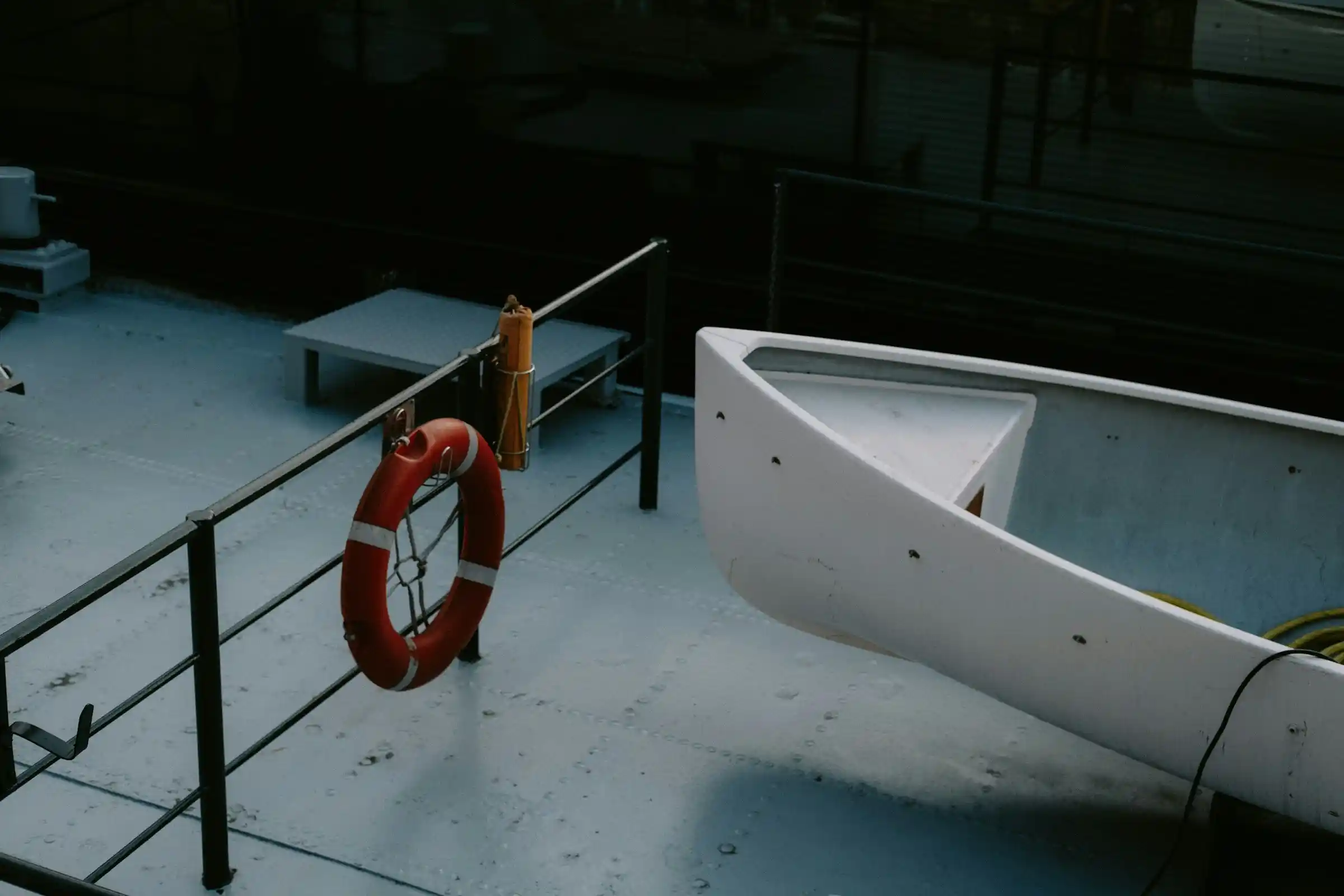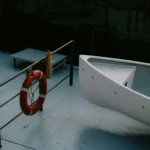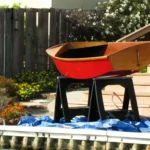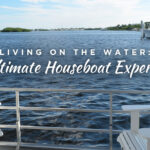
Are Houseboats Safe to Live On? Everything You Need to Know
Living on a houseboat sounds like a dream sunsets on the water, freedom from crowded neighborhoods, and a connection with nature that’s hard to beat. But as enchanting as it sounds, one key question often comes up: Are houseboats safe to live on?
Whether you’re planning to live aboard full-time or part-time, safety is a crucial consideration. In this in-depth guide, we’ll break down everything you need to know about houseboats safety from structural integrity and fire hazards to storm preparedness and security. You’ll learn how modern houseboats are designed to be secure, what risks to be aware of, and how to ensure your floating home is as safe as any land-based residence.
Understanding the Design: How Safe Are Houseboats?
Houseboats today are designed with marine-grade engineering, meaning they’re built to float stably and withstand common environmental conditions. While they don’t handle rough seas like ocean yachts, most modern houseboats are stable in calm waters like lakes, rivers, and protected bays.
Here’s how houseboat design contributes to safety:
-
Buoyancy and Stability: Wide hulls or pontoons provide balance, making capsizing very rare.
-
Anchoring Systems: These keep the boat securely in place, even during wind or current shifts.
-
Durable Construction: Materials like aluminum, fiberglass, and marine plywood are treated to resist rot, rust, and corrosion.
For those wondering whether houseboats tip or sink easily rest assured that they are engineered to avoid such scenarios, especially when moored at a safe, well-maintained marina.
Common Houseboat Safety Risks (And How to Manage Them)
Every home has its risks and so does living on the water. Fortunately, most of these can be controlled with proper awareness and preventive measures.
1. Fire Hazards
Since houseboats often use propane for cooking or heating, there’s a risk of fire. However, with safe installation and regular inspections, this risk is low.
Safety Tips:
-
Install smoke and carbon monoxide detectors.
-
Keep fire extinguishers in the kitchen, engine room, and sleeping areas.
-
Ventilate propane areas and inspect gas lines regularly.
2. Storms and Flooding
Weather is one of the most significant concerns when discussing houseboat safety. Heavy rain, high winds, and flooding can put boats at risk especially in exposed areas.
Safety Tips:
-
Choose marinas that are protected by breakwaters or located in calm inlets.
-
Use proper mooring lines and fenders to avoid damage during storms.
-
Install bilge pumps to prevent water accumulation inside the boat.
3. Carbon Monoxide and Gas Leaks
Like in RVs or cabins, enclosed spaces on a boat can accumulate fumes if not properly ventilated.
Safety Tips:
-
Avoid running engines or generators while docked near other boats.
-
Use marine-grade carbon monoxide alarms.
-
Service heating and cooking equipment annually.
4. Slip and Fall Risks
Surfaces on boats can get wet and slippery, increasing the risk of falls.
Safety Tips:
-
Install anti-slip mats and grip tape on decks and steps.
-
Use railings and secure handholds on walkways.
-
Keep walkways clear of clutter, especially in emergencies.
Houseboat Electrical Safety and Power Management
One of the most overlooked aspects of houseboats safety is the electrical system. Boats operate on a mix of shore power (when docked) and onboard battery or generator systems.
Key Electrical Safety Considerations:
-
Use marine-grade wiring and connectors to resist moisture and corrosion.
-
Install ground fault circuit interrupters (GFCIs) in all wet areas.
-
Have a licensed marine electrician inspect systems annually.
Also, never overload circuits or run household appliances beyond the capacity of your boat’s inverter or battery bank.
Security: Are Houseboats Safe from Theft?
Security on houseboats is typically similar to that of RVs or vacation cabins. When docked at secure marinas, the risk of theft or break-ins is low but it’s still wise to take precautions.
Security Tips:
-
Use door locks, motion-sensor lights, and cameras (many are Wi-Fi-enabled now).
-
Don’t leave valuables in plain sight.
-
Get to know your dock neighbors many marina communities look out for each other.
Some houseboats also use smart security systems, GPS tracking, and wireless monitoring—just like modern homes.
Health and Sanitation Considerations
Living on the water requires reliable systems for plumbing and sanitation to ensure safety and comfort.
-
Potable Water: Use UV filtration or marine-safe purification systems if you’re filling tanks from lakes or rivers.
-
Toilets: Most boats use marine heads with holding tanks. Ensure regular pump-outs to avoid odors and backups.
-
Mold and Mildew: Good ventilation is essential to prevent moisture buildup. Dehumidifiers are a smart investment in humid climates.
Kids and Pets on Houseboats: Are They Safe?
Families often wonder if houseboat living is safe for children or pets. With the right safety features in place, the answer is yes.
Recommended Safety Measures:
-
Install safety netting or fencing around deck perimeters.
-
Ensure everyone wears life jackets when outdoors especially kids.
-
Teach basic water safety and emergency procedures early.
Pets can thrive on houseboats too. With proper barriers and designated areas, they adapt quickly and enjoy the water just as much as their owners.
Emergency Preparedness on a Houseboat
Because access to emergency services may take longer on water, it’s critical to prepare in advance.
Essential Emergency Supplies:
-
Life jackets and throw rings for every person onboard
-
First aid kit with waterproof storage
-
Emergency radio or marine VHF for communication
-
Fire blankets, extinguishers, and flares
-
Backup power sources like solar chargers or inverters
It’s also a good idea to take a basic boating safety course even if your houseboat stays docked most of the time.
Comparing Safety: Houseboats vs. Land-Based Homes
While the environments are different, many of the safety concerns are similar:
| Safety Feature | Houseboat | Land-Based Home |
|---|---|---|
| Fire Risk | Present (propane/gas) | Present (kitchen/electrical) |
| Theft/Burglary Risk | Low in secured marinas | Varies by neighborhood |
| Weather Preparedness | Requires mooring & floating safety | Requires wind/hail/flood prep |
| Utilities | Managed independently or by marina | Managed by city infrastructure |
| Mold Risk | Higher without good ventilation | Depends on climate/building age |
In short, houseboat safety requires attention to unique water-related issues, but it’s no less manageable than a traditional home with proper care.
Tips to Make Living on a Houseboat Safer
To wrap things up, here are some of the best ways to keep your floating home safe and sound:
-
Choose the Right Marina: Look for protected locations with full services and a reputation for cleanliness and safety.
-
Stay Updated on Weather: Use marine weather apps and alerts to stay prepared.
-
Conduct Regular Inspections: From hull integrity to fire safety, annual inspections are vital.
-
Train Household Members: Everyone aboard should know how to respond to emergencies and use basic equipment.
-
Invest in Modern Equipment: Today’s marine tech—like bilge alarms, smart sensors, and solar panels—adds layers of safety and comfort.
So, are houseboats safe to live on? Absolutely—when equipped and maintained properly. While they come with unique considerations, houseboats are designed to be stable, secure, and comfortable. Whether you’re in a cozy lake marina or exploring a slow-moving river, modern safety features make houseboat living a viable option for singles, couples, families, and retirees alike.
With proper planning, the right setup, and a safety-first mindset, living on a houseboat can be just as secure—and a lot more serene—than living on land.
Frequently Asked Questions (FAQs)
Are houseboats stable and unlikely to capsize?
Yes, modern houseboats are designed with wide hulls or pontoons that offer excellent stability in calm waters. Capsizing is extremely rare, especially when docked or moored properly, making houseboat safety reliable in most residential settings.
What safety equipment is essential for living on a houseboat?
Essential safety equipment includes life jackets, smoke and carbon monoxide detectors, fire extinguishers, first-aid kits, bilge pumps, and marine radios. These tools are crucial for maintaining a high level of houseboat safety, particularly in emergencies.
How do houseboats handle bad weather or storms?
Houseboats are generally moored in sheltered waters like lakes, rivers, or protected bays. In such locations, storms are less intense. With secure mooring lines, fenders, and advance weather monitoring, houseboat safety during bad weather can be effectively managed.
Is it safe to use propane or gas appliances on a houseboat?
Yes, propane and gas can be safely used when installed properly and maintained regularly. It’s important to ensure proper ventilation, routine inspections, and functioning gas detectors to reduce risks and enhance houseboat safety.
How secure are houseboats from theft or unauthorized entry?
When docked at reputable marinas with gated access and surveillance, houseboats are generally very secure. Additional home security measures such as locks, lights, and cameras can further improve houseboat safety against theft or intrusion.





